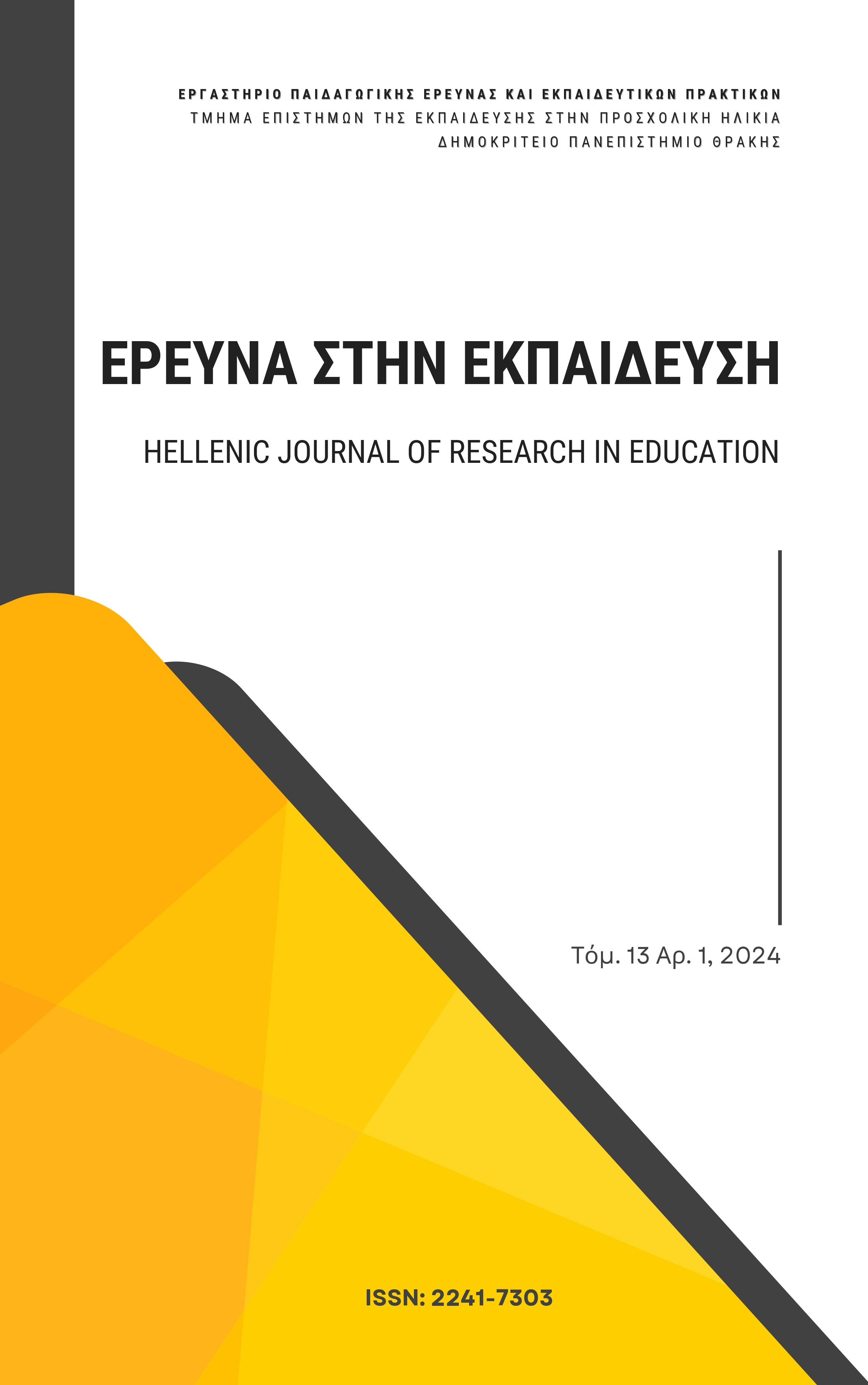Teachers' Perceptions of their Self-Efficacy and Quality of Professional Life

Abstract
The purpose of the research was to investigate teachers' perceptions regarding their self-efficacy and the quality of their professional lives. The relationship between the two concepts was studied, as was the existence of any differences between teachers' perceptions of self-efficacy and the quality of their professional lives in terms of gender, age, educational level, and years of experience. Finally, the predictive role of self-efficacy in the quality of teachers' professional lives was studied. The participants were 332 teachers of primary and secondary education from schools in the broader area of Attica, where the capital of Greece is located. Participants completed online the Teachers' Sense of Efficacy Scale, the Professional Quality of Life Scale, and a questionnaire on demographics. The results showed that teachers have positive perceptions regarding their self-efficacy and the quality of their professional lives. A statistically significant, but low, negative correlation was found between self-efficacy and burnout, and a statistically significant, moderate positive correlation was found between self-efficacy and compassion satisfaction. Statistically significant differences were also observed between men and women in secondary traumatic stress and compassion satisfaction, while statistically significant differences were found in teachers' self-efficacy, based on their years of service. Finally, it was found that self-efficacy could predict compassion satisfaction and burnout. Findings are discussed in relation to current literature.
Article Details
- How to Cite
-
Lampropoulou, A., & Koutroumpi, M. (2024). Teachers’ Perceptions of their Self-Efficacy and Quality of Professional Life. Hellenic Journal of Research in Education, 13(1), 47–65. https://doi.org/10.12681/hjre.35618
- Issue
- Vol. 13 No. 1 (2024)
- Section
- Articles

This work is licensed under a Creative Commons Attribution-NonCommercial-ShareAlike 4.0 International License.
Authors who publish with this journal agree to the following terms:
- Authors retain copyright and grant the journal right of first publication with the work simultaneously licensed under a CC-BY-NC-SA that allows others to share the work with an acknowledgement of the work's authorship and initial publication in this journal.
- Authors are able to enter into separate, additional contractual arrangements for the non-exclusive distribution of the journal's published version of the work (e.g. post it to an institutional repository or publish it in a book), with an acknowledgement of its initial publication in this journal.
- Authors are permitted and encouraged to post their work online (preferably in institutional repositories or on their website) prior to and during the submission process, as it can lead to productive exchanges, as well as earlier and greater citation of published work (See The Effect of Open Access).


